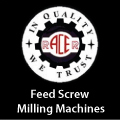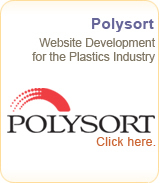
Thermal Fluid Systems, Inc
Contact: Clive Stone
3046 Matlock Drive
Kennesaw, GA 30144
U.S.
Phone: 770-425-5556
Fax: 770-425-5556
Products
Konus KV/KH Series High Efficiency 3-pass Fired Heater
Gas, oil or waste fuel-fired thermal fluid ("hot oil") heating systems provide high efficiency and low pressure operation for temperatures up to 750°F (399°C). Standard designs come in both horizontal and vertical configuration ranging from 500,000 to 50 MM BTU/hr. Our 3 pass dual helical coil design heater can be skid-mounted and customized to meet your exact requirements with standard efficiencies up to 90 % (LHV), or higher with heat recovery.
KVE/KHE Series Electric Heater & Exchangers
Electric thermal fluid ("hot oil") heating systems provide high efficiency and low pressure operation for temperatures up to 750°F (399°C). Electric heaters can be used for small capacity applications and where a fuel supply is not available ranging in size from 50 kW to 5+ MW. Our electric heaters and exchangers can be be skid-mounted as a complete system and customized to meet your exact requirements.
TFSS Fluid Filtration Systems
Thermal fluids degrade over time by the breakdown of hydrocarbons and oxidation that can cause particulates that may deposit in the heater, valves, pumps, and other system components. The TFSS filtration system continuously removes these particulates down to 10 micron size and prolongs the system and fluid life, reduces maintenance and avoids operating failures. These units can easily be retrofitted to an existing system and are available in side-stream or full flow configuration.
Process & Secondary Skids
Thermal Fluid, Steam, Glycol and other process control loop skids can provide highly accurate control temperatures with tolerances as close as +/- 1°F (0.5°C). Custom engineered designs incorporating heating and cooling (with water, chilled water, air or other media) for multiple users connected to a single heater can be supplied completely skid-mounted to meet exacting process application requirements.
Replacement Parts
TFS offers experienced personnel for technical support by phone and fax, and also on-site troubleshooting, maintenance and start-up, for Konus and other brands of thermal fluid heating systems. We carry a stocking inventory for many different brands of components used to make up a complete heating system, including:
Pumps:
Allweiler, Dean Bros., Dickow, Kontro, KSB, Sihi, etc.
Valves:
Ari, Baelz, Regeltechnik, WTA, etc.
Burners:
Eclipse, Gordon-Piatt, Industrial Combustion, Maxon, North American, Pillard,
Power Flame, Saacke, Weishaupt, etc.
Controls:
Allen Bradley, Barber Coleman, Baelz, Fireye, Honeywell, Jumo etc.
TFS can also service and support other brand heaters such as Eclipse, First Thermal, Geka/GTS, Bay, Fulton, Heatec, HTT, Wellons, Vapor, etc.
Preferred Customer Program
TFS technology and experience combine to maintain your heating system's reliablility and efficiency
Owners of TFS, Konus or other brand heaters can take advantage of a regular maintenance plan to keep your unit operating safely and efficiently. Participation in the plan includes numerous other benefits including preferential service and a discount on replacement parts. Your only commitment is to schedule a one day preventive maintenance inspection by an experienced TFS technician. The visit will include the following checks:
Measure burner combustion, adjust to ensure best efficiency
Check all operating and safety controls for adjustment and safe operation
Check heater ancillary equipment (pumps, valves etc.) for correct operation
Review with plant personnel operating and maintenance procedures to maintain increased operating efficiency, ensure safety and prolong equipment life
The small cost for the maintenance visit will be repaid in most cases by increased operating efficiency. In addition we are offering these extra benefits:
5% discount on prices for all spare parts purchased during and for one year following the maintenance visit. THIS DISCOUNT IS INCREASED BY 5% FOLLOWING THE SECOND AND THIRD ANNUAL MAINTENANCE VISITS UP TO A MAXIMUM 15%. The 15% discount is maintained as long as annual visits are continued
Priority scheduling of service calls for plan customers
To enroll in the plan and to find out the cost for your initial maintenance visit, call TFS at (770) 425-5556, FAX to (770) 425-9559 or e-mail sales@tfsheat.com. We will schedule a visit within four weeks of receiving your call. After the visit, you will receive a detailed listing of the heater operating parameters and any adjustments that were made. You will also receive a list of required and recommended spare parts. We will automatically contact you as the annual plan anniversary approaches to give you the option to renew and increase your parts discount level.
Please note that participation in this plan only confers benefits as described herein, and that maintenance and safe operation of the equipment being serviced is the responsibility of the owner. TFS, Inc. does not offer any warranty against breakdowns of any kind and does not accept any liability for the failure of the system being maintained.
Typical Applications
TFS has experience in a vast range of heating applications in all industries. Here are examples of many applications where thermal fluid may be utilized. If your application does not happen to be listed here, do not hesitate to contact us as we can develop a custom solution for almost all indirect heating requirements.
Heated Rolls Laundry Asphalt
Calender Rolls
Plastics
Process Skids
Wood Presses Textiles Mixers
Laminating Presses Printing Machines Coatings
Molding Presses Edible Oils Sludge Drying
Rubber Presses Adhesives Tank Heating
Dryers Resins Reactors
Fuel Heating Heat Exchangers Ovens
Cargo Heating Fluidized Beds Fryers
Heat Tracing Food Industry Kilns
Dry kilns Chemicals Wood Board Plants
Tenter Frames Pharmaceuticals Remediation
Frequently Asked Questions
What is a thermal fluid system?
ANSWER: Also known as hot oil (or sometimes Dowtherm) systems, these are industrial heating systems wherein a special heat transfer liquid is recirculated by a pump through a fired (or electric) heat exchanger where the temperature is raised for use in heating various processes.
What are some typical applications?
ANSWER: Usually used in the range from 200 to 750 deg F, typical applications include:
*
Heating press platens such as OSB and plywood presses, laminating presses, rubber and plastic molding presses, circuit board presses.
*
Heating calender and drying rolls such as for non-wovens, papermaking felts.
*
Heating chemical, petrochemical and other process equipment such as reactors, heat exchangers, dryers, evaporators.
What are the advantages and drawbacks of these systems?
ANSWER: The main advantage is that the systems run at a very low pressure, typically just the pressure required to pump the liquid around the system. When designed correctly they reliably and efficiently produce high temperature heat. They are simple to maintain with only the burner and pump needing regular maintenance.
Disadvantages include the fact that the heat transfer fluids used are flammable and have a low viscosity so they are prone to leakage. The fluids can also break down (thermally and by oxidation) in poorly designed systems causing deposits and sludges that hurt the system performance.
How does the heater work?
ANSWER: The heater has cylindrical coils through which the recirculating fluid passes. A gas or oil fired burner fires into the center of the coil system heating up the fluid. Typically the fluid temperature rises between 20 and 100 deg F between the heater inlet and outlet. The TFS heater has a special three-pass flue gas arrangement for high effiency.
Click HERE for a detailed drawing of the heater.
What kind of burner can be used?
ANSWER: TFS can supply any of the national brand burners firing gas, #2 through #6 oil and waste fuels if required. The burner model is selected and the application engineered to the exact needs of the particular heater.
What kind of pump can be used?
ANSWER: Up to 600 F inexpensive air-cooled mechanical seal pumps may be supplied. For higher temperatures water cooled or magnetically coupled pumps can be used. In some applications API pumps may be preferred.
Are there any special requirements for isolation valves?
ANSWER: TFS recommends the use of valves with a leak proof and maintenance free metal bellows sealing arrangement. The initially higher cost over a packed valve is offset by the minimal maintenance requirements.
What is the pump strainer for?
ANSWER: This strainer has a coarse mesh screen that stops solids bigger than about 1/8" that could damage the pump. A sidestream filter with a much smaller screen is sometimes used for systems that have small solids resulting from fluid breakdown in circulation.
Click HERE for a photo of a sidestream filter.
What is the degasser for?
ANSWER: This is a specially designed tank located at the pump suction that helps to separate any air or vapors from the circulating fluid and vents them up to the expansion tank.
What is a Temperature Blocking Vessel?
ANSWER: Our systems have a small buffer tank between the hot circulating fluid and the expansion tank which we call a Temperature Blocking Vessel. As the system heats up, the system liquid expansion flows from the top to the bottom of the Temperature Blocking Vessel to the expansion tank. The initial cold contents of the Temperature Blocking Vessel buffer the expansion tank, reducing its temperature rise. After heat up, the expansion tank is effectively isolated from the system by the Temperature Blocking Vessel and it cools down to near ambient temperature.
How big does the expansion tank need to be?
ANSWER: All thermal fluid manufacturers publish data for the volume expansion of their heat transfer fluid from ambient to the system operating temperature. We calculate the initial system volume and apply this expansion factor, add an allowance for minimum and maximum tank fill and select the tank size accordingly.
What safety controls are in a typical system?
ANSWER: TFS supplies a comprehensive set of safety controls in all of our systems. All of our heaters incorporate continuous flow monitoring with an orifice plate IN EACH HEATER COIL and differential pressure switches. We have redundant fluid outlet temperature alarms, a high stack temperature alarm and an automatic interlock to allow minimum firing only during warm up, when the oil flow may not be fully established. We provide low and (optional) high expansion tank level alarms. The burner is supervised by an electronic flame programmer with typically a UV flame scanner, and the fuel trains come with low and high fuel pressure alarms and approved block and bleed valves.
Is a drain tank always required?
ANSWER: Small systems (up to about 1,000 gallons) often are supplied without a drain tank as it is practical to fill directly from drums. With larger systems the drain tank may be a smaller volume than the entire system as it is rarely necessary to drain the entire system at once.




